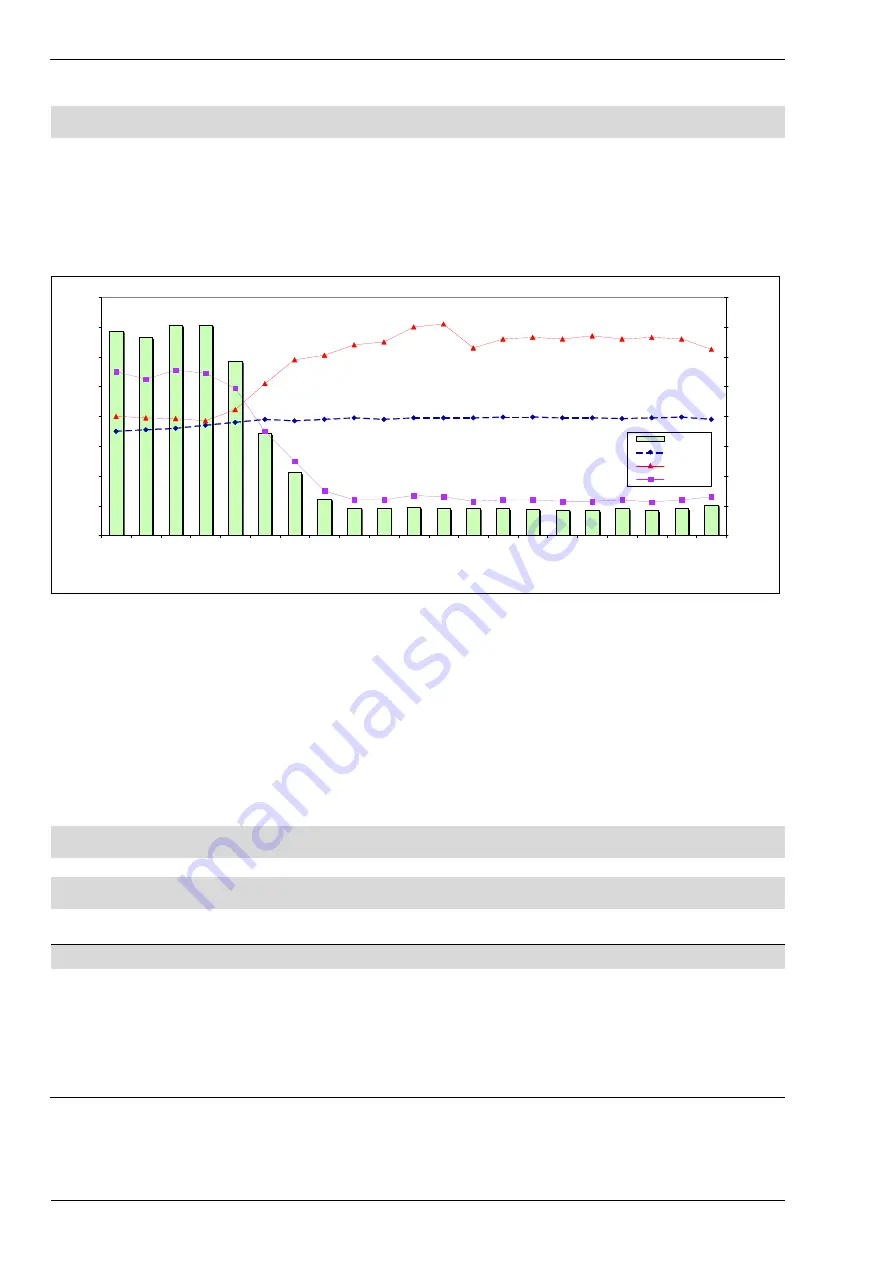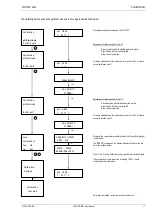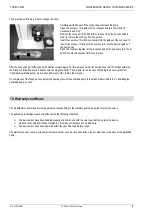
FOS/TAC 2000
INTRODUCTION
812-04.2015-EN
FOS/TAC 2000 User Manual
8
2
Introduction
The crucial parameter for assessing the fermentation process is the ratio of volatile organic acids (VOAs) and the capability of the
fermentation substrate to neutralise acid formation, i.e. buffer capacity (TAC). TAC means "Total Anorganic Carbon" and
corresponds to the equivalent of all the buffer substances contained in the substrate. A rising VOA/TAC ratio means the risk of
acidification of the fermenter substrate. Controlling the pH alone is often not sufficient, so that it is important to be able to determine
the VOA/TAC values. The relatively simple VOA/TAC analysis enables the early detection of the onset of acidification and its
avoidance by suitable counter-measures.
Illustration: FOS/TAC analysis diagram
FOS/TAC 2000 enables plant operators to perform FOS/TAC analyses without further external assistance. The fully automated
system reduces operator errors to a minimum and enables a high repeatability rate. This is important because the most recent result
must always be evaluated in light of the previous results. 5 g of fermenter substrate is necessary for the analysis and must be
diluted to 20 g with distilled water. The subsequent titration process is fully automated. The results for total acids (VOA), the buffer
capacity (TAC) and the VOA/TAC value are displayed after a few minutes. The benefits of using the small, compact lab at the
biogas plant are obvious: Analyses can be performed more frequently than before. Furthermore, the results are immediately
available.
3
Hardware description
3.1
Measuring characteristics
Gas type
Measuring range
Resolution
Measuring principle
Other
pH
0 ... 10 pH
0.001 pH
Combination electrode
Temperature
0 ... 50 °C
0.01 °C
NTC
FOS
1 ... 10 g/kg
0.01 g/kg
Titration
Unit: g
org.acids
/ kg
substrate
TAC
5 ... 20 g/kg
0.01 g/kg
Titration
Unit: g
CaCO3
/ kg
substrate
FOS/TAC
0.05 ... 2.00 -
0.01 -
Measured value calculated
The following sections deal with the installation, operation and calibration of the analyzer.
1
,3
8
1
,3
3
1
,4
1
1
,4
2
1
,1
7
0
,6
9
0
,4
2
0
,2
5
0
,1
9
0
,1
8
0
,1
9
0
,1
8
0
,1
8
0
,1
8
0
,1
8
0
,1
7
0
,1
7
0
,1
8
0
,1
7
0
,1
8
0
,2
1
0
2
4
6
8
10
12
14
16
1
6
.0
3
.0
8
1
7
.0
3
.0
8
1
8
.0
3
.0
8
1
9
.0
3
.0
8
2
0
.0
3
.0
8
2
1
.0
3
.0
8
2
2
.0
3
.0
8
2
3
.0
3
.0
8
2
4
.0
3
.0
8
2
5
.0
3
.0
8
2
6
.0
3
.0
8
2
7
.0
3
.0
8
2
8
.0
3
.0
8
2
9
.0
3
.0
8
3
0
.0
3
.0
8
3
1
.0
3
.0
8
0
1
.0
4
.0
8
0
2
.0
4
.0
8
0
3
.0
4
.0
8
0
4
.0
4
.0
8
0
5
.0
4
.0
8
0
6
.0
4
.0
8
F
O
S
[
o
rg
.
S
äu
re
n
]
/
T
A
C
[
C
a
C
O
3
]
p
H
-W
e
rt
0,0
0,2
0,4
0,6
0,8
1,0
1,2
1,4
1,6
F
O
S
/T
A
C
-W
e
rt
[
-]
FOS/TAC
pH-Wert
TAC
FOS
Summary of Contents for FOS/TAC 2000
Page 2: ......
Page 4: ......
Page 21: ...FOS TAC 2000 APPENDIX 812 04 2015 EN FOS TAC 2000 User Manual 21 11 Appendix Appendix ...
Page 22: ......









































